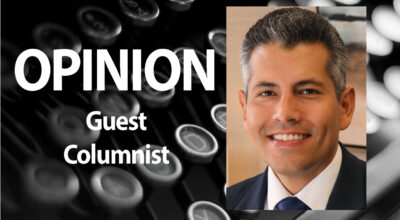Response to “Public Needs More Information” on SH 105
Published 6:09 pm Saturday, May 7, 2016
Editorial by Duane Gordy
This toll project is being developed exclusively by private dollars. Since the project is being developed with no support by any public agency, some financial data will be retained by the developer. If the state or local government, however, decides to provide any commitment to the financial part of the project, then all financial information will be supplied.
In addition, part of the predevelopment process is to determine the capacity of the project to operate and be sustained. This project is not at that stage of development. First, what needs to be determined is if the state or local government agencies have any plans to develop a competing project, and, secondly, to determine if the use of a revenue based model is acceptable to the region?
A map will be available for review, however, the alignments will need to be evaluated on construction expense, public impacts, environmental impacts, social impacts, and connectivity prior to being provided for review. At this point in the development, the best alignment has not yet been identified but would be available for public comment during the development of an environmental document which is already required by law.
The interchanges to this process will be identified while working with local transportation planners for state and local governments. This toll, however, is using private capital which requires the identification of the revenue models that are available be identified prior to expense being generated on any specific design component.
In response to a Comprehensive Development Agreement, the Department of Transportation enters into a CDA once the financial components of a project have been identified. This process is referred to as a risk analysis. There will first be a Memorandum of Understanding that assigns roles and responsibilities. Then comes the process of developing a financial model and early stage project specifics will begin. This does not commit local government to accepting a project, but it does allow for the introduction of private capital to begin a process that is designed to service a need that current transportation funding will not.
For any process to begin on a potential transportation facility, it must be on the Transportation Improvement Plan. This is based on a Federal requirement that all major transportation be evaluated for its impact on air quality. Although it provides a platform for public comments, the process was designed to allow the general public to be a part of the decisions when it pertains to the expenditures of the state and local government to specific projects that are to be developed. This would not hold true in this project since the funding is private and not public dollars.
Also in response to the federal highway aid, this project would not be subject to that system or funding. It may become a part of the system, but I would expect that inclusion to be for emergency management and government oversight reasons only. In regards to the guarantee of no taxpayer exposure, there are examples around the state with distressed tollway projects that are local or state facilities. There are also examples of projects that have private capital included where the project is on the state system and the project is under financial strain, but the state has no exposure and derives income from the project during the financial strain. There are projects that have been built by state funds that are not producing funds needed to offset the costs.
This project is not under any of those scenarios and, if a default were to occur, it would be at the exposure of the debt issuer to keep the project alive, not the taxpayer. There has been a great deal of work in getting this separation at the legislative level to protect taxpayers and provide that covering to existing tax revenue. The best way to support – or not support – the project would be using it once it is built or choosing not to. Other than that, we suggest everyone stay involved in the process.
Duane Gordy is Executive Officer of the Creative Development Services LLC. He can be reached at dgordy@mail.com





